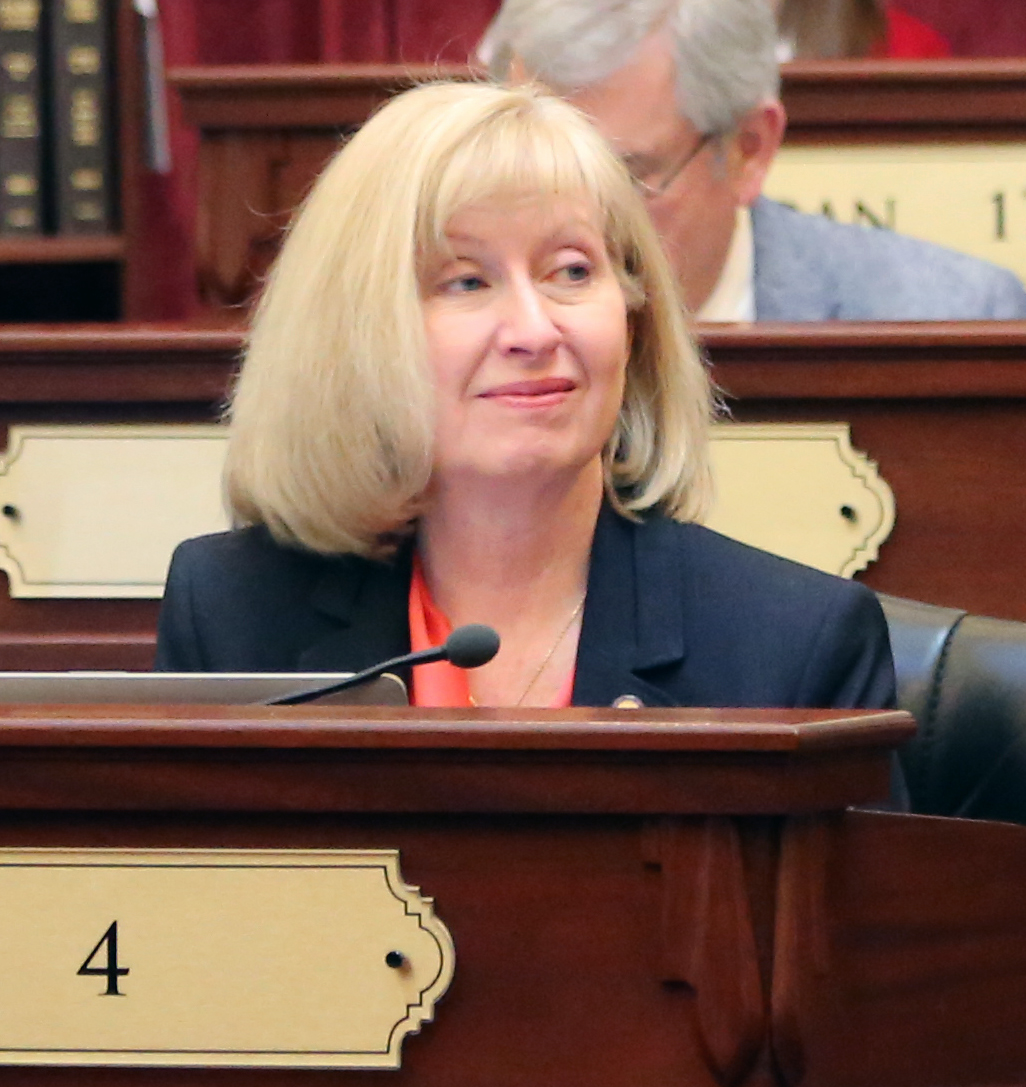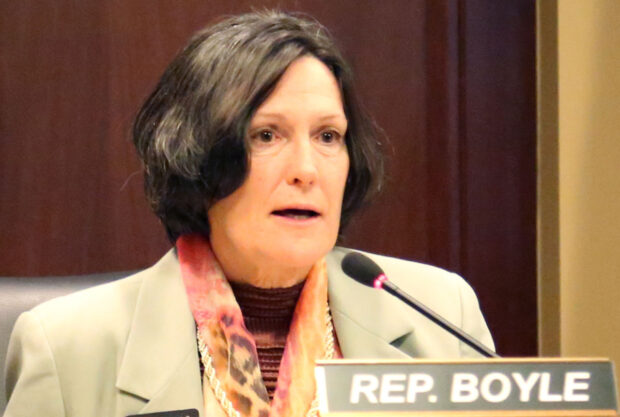The House Education Committee Monday held a bill to close Idaho schools for up to four election days per year.
This action effectively kills House Bill 196.

Ada County Chief Deputy Clerk Phil McGrane pushed the bill, calling it a school safety measure. But several education groups opposed the bill, saying it would reduce instruction time and impose additional burdens for rural districts.
McGrane said schools are Idaho’s most commonly used polling places, and a hotly contested election could bring up to 2,000 new adults into a school in a densely populated area.
Citing overcrowding or safety concerns, some administrators have said they do not want schools used as polling places, McGrane said. Cassia County schools no longer serve as polling places, Idaho Falls Police Chief Mark McBride expressed concerns about providing security at schools during the recent presidential election and a Boise elementary principal asked to no longer serve as a polling place due to overcrowding.
A U.S. Department of Justice audit that found other Ada County polling places — including churches exempt from Americans with Disabilities Act requirements — do not meet federal accessibility guidelines.
As a result, elections officials have been forced to use less-than-ideal procedures — from opening polls outside some Ada County residents’ home precinct to setting up polls in a Bannock County yogurt shop.
The Idaho School Boards Association and Idaho Association of School Administrators strongly opposed the bill. They argued that a few local availability issues should not necessitate closing all schools. They also said there have been no cases of Election Day violence in Idaho schools, and said the new bill diminishes local control.
“Many school districts operate with four-day school weeks,” said Jessica Harrison, ISBA’s director of governmental affairs. “We’ve heard from them that it would be very difficult to comply with this law and maintain instruction time without extending the school year.”
Rep. Patrick McDonald, R-Boise, was one of the only committee members who opposed holding the bill.
“The problem is not going to go away; we need to address this issue,” McDonald said.
Trustee election day bill clears committee
The latest attempt to move school board elections to November is headed to the Senate floor, where it could be amended.
As now written, Senate Bill 1103 would do three things. First, it would move trustee elections from May in odd-numbered years to November in even-numbered years. Second, it would give districts the option of continuing to elect trustees by zones, or electing all trustees across the entire district. Third, it would require districts to redraw school trustee zones to align with precincts, wherever possible.

The overarching goal is to improve turnout for trustee races, said Sen. Mary Souza, R-Coeur d’Alene, the bill’s sponsor. It’s not uncommon for school board election turnout to lag below 10 percent.
The shift would move nonpartisan trustee races to partisan general elections, where they would share a ballot with races for president, governor and Congress.
The ISBA and the IASA opposed this election bill as well. They said the move to a November election would disrupt the school calendar. Trustees now take office on July 1, at the start of a school district’s budget year. If trustees are elected in November and take office in January, they would begin work in the middle of a district budget year, and in the middle of the academic year.
Souza conceded the need to amend her bill. Under another section of law, school boards must hold an annual meeting in July to select a chair and vice chair — and this would not align with a November trustee election.
However, she argued that lawmakers should make voter participation their top priority.
“I know change is not easy, especially for institutions,” Souza said.
Senate Education voted down a motion to kill Souza’s bill, with Sen. Bob Nonini, R-Coeur d’Alene, siding with Sens. Janie Ward-Engelking and Cherie Buckner-Webb, both D-Boise. The committee then sent the bill to the Senate floor for amendment, on a voice vote.
SB 1103 combines two school election bills killed in Senate Education in 2016.
Waiving instruction time requirements
By coincidence, House Education took up a different bill allowing school districts to seek a waiver from minimum instruction time requirements.
Rep. Judy Boyle, R-Midvale, said House Bill 242 is designed to offer relief to school officials struggling to make up instruction time in the wake of prolonged winter school closures. The bill would allow districts to request a waiver if the state or a home county receives a formal disaster declaration.

In response to the closures, Boyle said some schools in her legislative district have added 20 minutes to remaining instruction days. Other districts, such as Weiser, are considering extending the school year by one week. Fruitland officials are extending the last day for the senior class by three days. Meanwhile, Boyle reported that Shoshone and Castleford schools have already used up all their snow days and closure grace periods, with three months still to go in the academic year.
“As you all know, this has been a horrid winter,” Boyle said. “They are all trying very hard to make up for this.”
The bill states: “The State Board of Education may grant a waiver of the minimum number of instructional hours for a school district when districtwide school closures are necessary as a result of natural occurrences creating unsafe conditions for students.”
Boyle’s bill contains an emergency clause, which means it would be able to help school districts this year if it is signed into law.
HB 242 next heads to the House floor with a recommendation it pass.
Collective bargaining negotiations
On Monday afternoon, the House Ways and Means Committee introduced a bill related to collective bargaining.
Rep. Dorothy Moon, R-Stanley, pushed the bill, which would allow school boards to ask for verification that a local teachers’ union held an election by secret ballot within the past two years.
Moon, a retired teacher, left in place existing laws allowing school boards to verify the fact that a union represents at least 50 percent of a district’s professional employees.
Rep. Ilana Rubel, D-Boise, pushed back against the bill during a brief introductory hearing. She asked Moon if there are any other laws on the books that dictate other, nongovernmental unions must conduct elections via secret ballot. Moon said she could not answer that question.
Ways and Means introduced the bill on a 4-3 party line vote. Committee Chairman Robert Anderst, R-Nampa, delayed considering the bill until all four Republicans arrived at the meeting. Rep. John Vander Woude, R-Nampa, arrived after the meeting began. Anderst chose to act on a different proposed bill while Vander Woude was absent, even though the bargaining and negotiations bill was listed first on the agenda.
Introducing the bill clears the way for House Education to conduct a full hearing in the coming days.
Idaho Education News reporter Kevin Richert contributed to this report.
